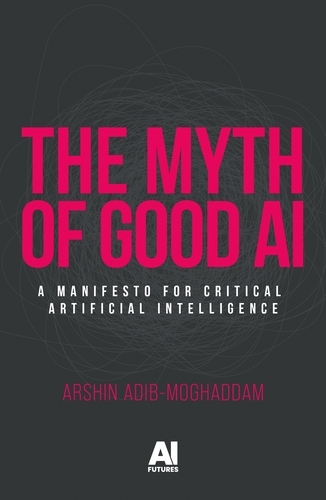
Facial-recognition software is now present in most of our phones, while an estimated 70 per cent of US companies use algorithms to help choose between job applicants. It’s clear that AI technology is here to stay, but with human prejudice already reflected in many AI-driven outcomes, the book shows we are reaching a critical juncture in harnessing this technology for a positive future.
This new technological revolution is truly transforming everything in our everyday life – from our social interactions and work conditions to government institutions and beyond.
The Myth of Good AI, the first book in Professor Adib-Moghaddam's “AI Futures” series, dismantles the “good AI” narrative peddled by tech giants and explores the extent of AI's impact on society. The book asks what implications AI has for our future – across philosophy, medicine, media, psychology, international affairs, economics and politics- while equipping the reader with strategies for survival.
Professor Adib-Moghaddam, a world-renowned political philosopher, said: “This new technological revolution is truly transforming everything in our everyday life – from our social interactions and work conditions to government institutions and beyond.
“More than ever before, when approaching this subject, we need to educate ourselves in our well-stacked private libraries. Firstly, to learn how we can protect and foster our privacy; secondly, to understand how we can render useful this age of Artificial Intelligence for social emancipation and equality; and finally to organise within our communities to bring about truly “good AI”.”
On reviewing the book, Danil Mikhailov, Executive Director, data.org, said: “The rise of AI is a technological revolution on a par with steam and electricity, transforming every corner of our lives, for better or worse. The critical reaction to this revolution from academia so far has been both underwhelming - evidencing a profound shock at the speed of change and an inability to get ahead of it - but also conspicuously dominated by viewpoints of the so-called Global North.
“Professor Adib-Moghaddam's book provides a much-needed correction by grounding his critique of AI in a Global Thought approach. Only by broadening the critical aperture of our philosophy from Eurocentrism to include perspectives of the rest of the world, can we ever hope to understand the full range of potentialities inherent in AI and be able to maximize its benefits and minimize its harms. A very timely and important work.”
The Myth of Good AI: A Manifesto for Critical Artificial Intelligence is published by Manchester University Press as the inaugural book of “AI Futures”, a new book series edited by Professor Adib-Moghaddam, which flanks the SOAS Centre for AI Futures that he co-directs.